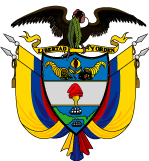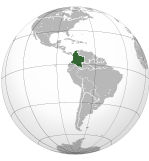Networked Learning
Does the educational system integrate ICTs into its processes to improve learning? Are there technical training programs in the community that can train and prepare an ICT workforce?

7. Schools' Access to Information and Communication Technologies (Stage 2/3)
Access to computers is limited in rural areas. The government is attempting to implement educational initiatives to improve the IT infrastructure and accessibility. This is an important support initiative for those rural communities that lack the resources to implement their own solutions.
An educational portal, “Colombia Learns”, provides information to teachers, students and researchers. Computer-based information is distributed at all levels including: nursery schools, primary and secondary schools, and above.
Since 2001, there have been 161,300 computers delivered to schools, according to government data.
We rate Colombia’s school ICT access as late Stage 2/early Stage 3. PCs are becoming commonplace in schools while government initiatives are under way to provide technological assistance to under-serviced areas.
8. Enhancing Education with ICTs (Stage 2)
The educational portal, “Colombia Learns”, provides information to teachers, families and researchers. Between 2008 and 2010, 1,579 teachers and teaching officials participated in training and events that focused on and were related to virtual education. Currently in development is a program that will address issues such as tutoring in virtual environments, design and application of ICT teaching methods, and virtual education courses for teachers.
There are approximately 36 public and private higher education institutions in Colombia that offer nearly 160 virtual training programs for technology professionals.
We rate Colombia’s enhancement of education through the use of ICTs as Stage 2. A limited number of teachers have been trained to provide technological assistance, though initiatives are under way to increase their numbers. Virtual training will likely play an important role in the future of Colombia’s educational system, especially for citizens living in rural areas.
9. Developing the ICT Workforce (Stage 2)
Washington D.C. supports a web portal that works with local civil society groups to apply ICT development and to help reduce poverty in Colombia. This site offers information regarding news, events, databases of non-governmental information and virtual courses.
Citizens have free access to vocational training in all economic areas which helps improve job opportunities. This training is provided by the National Learning Service, or SENA. They also provide at least 400 online courses.
We rate Colombia’s development of its ICT workforce as Stage 2. There are currently limited options available for training in ICT related matters. This situation should improve in the near-term, as there are several initiatives by the Colombian government and outside agencies to offer technology training programs and increase their availability to Colombian citizens.
 Colombia’s Networked Readiness
Colombia’s Networked Readiness